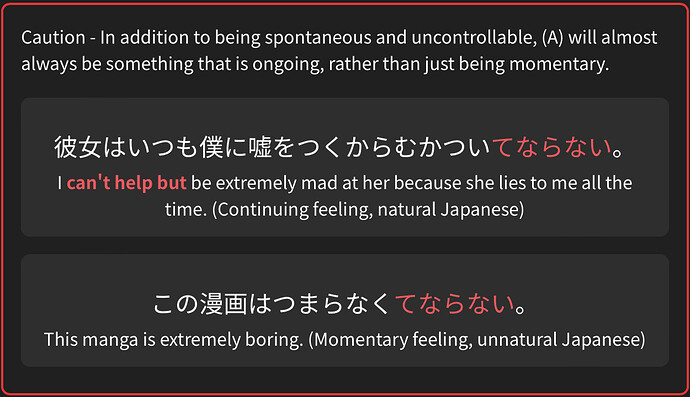I also notice that ないではいられない and ずにはいられない are seemingly always about someone doing or feeling someway, not about describing another object.
Like with your image you posted for てならない, it says the reason why この漫画はつまらなくてならない can’t be used is due to it being momentary. But I don’t think it could be a ないではいられない sentence either as its describing the state of the manga not your own action.
Maybe I am wrong about this, but I would take ずにはいられない to be saying “if not doing A, I couldn’t exist” and so is naturally always going to be about the speakers own actions because it needs a verb. But with てならない it does not require a verb and can describe states. Like in " 愛知県の夏は暑くてならない"
So I interpret てならない as “It’s A, and it can’t/wont become anything else” which then becomes, very or if its about yourself “I can’t help but __”
So I think the only time these become interchangeable (maybe?) is when you’re using a verb to describe your own feelings or judgement.
Curious if anyone disagrees or has any corrections in what I said, as its how I have been thinking about it and has helped me so far.

